As an entrepreneur, I’ve painstakingly learned the importance of heeding the best business advice I’ve received from many of the world’s top entrepreneurs. The bottom line: It takes a lot to start a business and grow it to profitability. Funny enough, the most impactful lessons have come from my biggest failures though.
All in all, despite receiving great business advice and success tips back during my college days, I’ve gone on to learn more about how not to start a business through my experiences. Still, my early failures haven’t stopped me in learning from my mistakes and moving on to become gainfully self-employed.
Over the past five years, I’ve gone from learning how to start a blog and growing it to more than 500,000 monthly readers (head over here if you want my top blogging tips). I’ve launched online courses, started a profitable freelance business, built physical products and more.
I grew my side business to over six figures in revenue before quitting my job in 2016.
Now, I’m teaching other entrepreneurs how to do get started in my free course, Find a Profitable Business Idea today. But this post isn’t really about me (surprise). And I want to start by answering an important question…
Why put much stock in business advice?
I’ll be the first to tell you that each and every one of these entrepreneurs I’ve interviewed to share their business advice with you—have had their own unique journey to building a successful business. They’re all different. Some come from backgrounds of wealth and influential connections—while others have built empires starting truly from nothing.
Don’t take the business advice you hear as gospel to be followed word-for-word. Rather, use it as a tool to inform your big decisions and major strategic moves within your own business.
The reason you should care about the business advice other successful entrepreneurs have to share with you… is that their experiences and words of wisdom may just come in handy one day. I worked hard to bring advice from a diverse sampling of the world’s most successful and respected entrepreneurs, so you’ll be prepared to start a business in today’s climate.
From Richard Branson to Arianna Huffington, Tim Ferriss, Mark Cuban, Sophia Amoruso and many more, the business advice from this group of entrepreneurs is collectively worth an incalculable amount of time and money.
They’ve created products & services we’ve all heard of, turned entire industries upside down, redefined what it means to be successful when you start a business and many have also written business books or taught online business courses about it. Suffice it to say, their business advice is worth its weight in gold.
Not surprisingly, many of these entrepreneurs had very similar pieces of business advice to share, based on what’s worked for them when it comes to learning how to grow a business.
Here were some of the biggest trends in their business advice:
- Business ideas alone are worth very little. If you want to start a business and become successful with it, you need to solve meaningful problems. Execution is everything in business.
- Don’t just learn how to start a blog (or any type of business) unless you’ll be doing something you truly love and are good at, or unless you can dedicate yourself to becoming that expert over the coming years. And if you do want to start a blog, be sure to get started on the right foot with the advice from one of these blogging courses.
- Becoming successful in business is more about your mentality, psychology and determination than it is about finding little tips, tricks, hacks and exploitations in the marketplace.
- Start today. The only true way to learn is by doing and you can’t afford to sit around waiting for funding, hoping someone else will come along to help you execute on your idea or complain that you don’t have the time. Making excuses won’t help you start a business and it sure as hell won’t help you create the lifestyle you want for yourself.
- Launch before you feel ready. If you wait until your product or service feels perfect, someone else will already be doing a better job of helping your customers solve their problems. Validate your business idea by launching fast, bringing on a small group of paying customers and adapting to make your solution great for them over time.
- How you choose to manage your time and decide which opportunities to pursue will greatly impact your success when starting a business. Outsource everything you can, so that you can focus on doing what only you can do in your business.
- Do everything in your power to avoid spending money when you start a business. Build a lean solution that provides value to your customers and only spend money on the absolute essentials at the moment you need them.
- Never stop building meaningful relationships with customers and other people in your industry. Choosing to instead view competitors as potential partners and collaborators can positively impact your business in a big way.
- Focus on setting & achieving small incremental goals rather than trying to start a business and instantly build your vision of what the company should be in the years to come. Setting realistic goals and milestones is a major component of building long-term success. This mentality is how I went from learning what a blog is, to eventually choosing a website builder to growing my blog with tactics like guest blogging and social promotion.
- Keep an eye on emerging trends in your industry (like AI) and experiment with ways they could amplify your business. For example, I’ve launched an entirely new side business, RightBlogger, on the back of the success of the free AI tools I’ve shared here on my blog—including my free AI article writer, blog title generator, keyword research tool, paragraph rewriter, domain name generator and more. It’s now a rapidly growing segment of my blog business, here.
- And much, much more…
Whether you want to start a business for the first time or you’re an experienced entrepreneur, you’ll find incredible value in the best business advice and success tips these entrepreneurs have to share today—some of them even made their way over to my list of the best motivational quotes I’ve heard.
Want the really good stuff?
Join my community today and I’ll send you weekly tips, strategies and insights on growing a side business.
"*" indicates required fields
Oh, and one last word of advice—I highly recommend reading this entire post.
You’ll hear from some of the most recognizable names in business from the past several decades.
63+ Top Entrepreneurs Share Their Best Business Advice and Tips for Success
Let’s kick this off with one of my biggest heroes in the world of business, Sir Richard Branson.
1. Richard Branson. 
Sir Richard Branson, one of the world’s most recognizable billionaires, and the founder of Virgin Group, has built an empire comprised of more than 400 companies including airlines, record stores, publishing organizations and he’s even tackling commercial space travel. He’s also the author of more than a dozen business books, including his latest (fantastic) autobiography, Finding My Virginity that shares from behind-the-scenes of the ups and downs throughout Branson’s more than fifty year career as an entrepreneur. During his interview on 30 Days of Genius with CreativeLive, I got to hear his best business advice for aspiring entrepreneurs who want to start a business of their own, first-hand:
“The best businesses come from people’s bad personal experiences. If you just keep your eyes open, you’re going to find something that frustrates you, and then you think, ‘well I could maybe do it better than it’s being done,’ and there you have a business.”
“If you can improve people’s lives, you have a business. People think, ‘well everything’s been thought of,’ but actually, all of the time, there are gaps in the market here and gaps in the market there.”
2. Arianna Huffington. 
Arianna is a co-founder of The Huffington Post, author of the recent New York Times best-seller The Sleep Revolution and stepped down as Editor-in-Chief of The Huffington Post to pursue her new wellness startup, Thrive Global, which will offer wellness trainings and workshops on stress reduction. Here’s her business advice for entrepreneurs who want to start a business for the first time:
“If you’re going to start a business, you need to really love it, because not everybody is going to love it. When The Huffington Post was first launched in 2005, there were so many detractors. I remember a critic who wrote that The Huffington Post was an unsurvivable failure.”
“When you get reviews like that and detractors like that, you have to really believe in your product. When you really believe in your product, you are willing to deal with all the naysayers and persevere.”
3. Mark Cuban. 
Mark is an entrepreneur and investor on ABC’s Shark Tank. He’s the owner of the NBA’s Dallas Mavericks, Landmark Theatres, Magnolia Pictures, and is the chairman of the HDTV cable network AXS TV. In his recent interview on 30 Days of Genius with CreativeLive, Mark talked a lot about the mistakes many new entrepreneurs make when they think they’ve found a profitable business idea. Here’s his business advice to those who want to start a business:
“What I always ask people is, (1) is it something you love to do and (2) is this something you’re good at?”
“Then, taking that first step is always the hardest. It’s terrifying, but really, it’s about preparation. We all go through this process where you’ve got the business idea, you get that feeling in your stomach and you get all excited. Then you talk to a friend, and your friend says, ‘oh wow that’s pretty cool, I’ve never heard of anything like that. I’d buy that.’ And then you do the Google search.”
“The first thing I’ll tell you, is that just because you don’t see it on Google, doesn’t mean one hundred companies haven’t gone out of business doing the same thing. It hasn’t been done for a reason, because every company that’s tried it, has gone out of business.”
4. Robert Herjavec. 
Robert is a seasoned entrepreneur and investor who’s built & sold several companies to major brands like AT&T. Now a leading authority on information security technology, he’s also one of the most recognizable faces from ABC’s award-winning show, Shark Tank where he’s earned a reputation for sharing down-to-earth business advice to young entrepreneurs. Here’s Robert’s best business advice for aspiring entrepreneurs when it comes to pitching your idea:
“You have 90 seconds, if you’re lucky. If you can’t make your point persuasively in that time, you’ve lost the chance for impact. Facts and figures are important, but it’s not the only criteria, you must present in a manner that generates expertise and confidence.”
“If you’re not prepared to make your pitch, you may just miss your next big opportunity.”
For more advice on how to successfully pitch investors, check out my friend Jock’s guide on how to pitch a Shark.
5. Sophia Amoruso. 
Sophia transformed Nasty Gal from an eBay store into a multi-million dollar empire with her own clothing line that was named the fastest growing retailer in 2012. She’s also the author of the New York Times best-seller #GIRLBOSS. Here’s her best piece of business advice to aspiring entrepreneurs who want to start a business:
“Don’t give up, don’t take anything personally, and don’t take no for an answer; you never know what you’re going to learn along the way.”
“The people who told me no, were the people that eventually told me yes; so don’t forget it.”
6. Tony Robbins. 
Tony is an entrepreneur, best-selling author, philanthropist and the nation’s #1 life and business strategist. A recognized authority on the psychology of leadership, negotiations and organizational turnaround, he has served as an advisor to leaders around the world for more than 38 years. He’s also the author of five internationally bestselling books, including the recent New York Times #1 best-seller MONEY: Master The Game. Tony has empowered more than 50 million people from 100 countries through his audio, video and life training programs. Here’s his business advice for aspiring entrepreneurs who want to start a business:
“The most painful mistake I see in first-time entrepreneurs is thinking that just having a business plan or a great concept is enough to guarantee success. It’s not. Business success is 80% psychology and 20% mechanics. And, frankly, most people’s psychology is not meant for building a business.”
“My business advice? Think honestly about who you are, what you want to accomplish, and what mindset you need to have to get there. Because the biggest thing that will hold you back is your own nature. Few people are natural risk-takers or emotionally ready for the challenges of building a business. You can’t just sign up for a marathon and run it without ever training. You have to increase your capacity and become fit. Being an entrepreneur requires similar kinds of emotional and psychological fitness so that you don’t become the chokehold on your business’s success.”
7. Tim Ferriss. 
Tim is a New York Times best-selling author of three books, including the The 4-Hour Workweek. He’s also an investor, host of what’s usually the #1-ranked business podcast and an entrepreneur in his own rite. Today, he’s passing on the best business advice he’s received:
“The best advice I’ve ever received is that you’re the average of the 5 people you associate with most.”
“I’ve actually heard this from more than one person, including bestselling authors, Drew Houston of Dropbox, and many others who are icons of Silicon Valley. It’s something I re-read every morning. It’s also said that ‘your network is your net worth.’ These two work well together.”
8. Guy Kawasaki. 
Guy is Chief Evangelist of Canva, the author of thirteen books including the acclaimed Art of the Start, which has been hailed as a weapon of mass creation by entrepreneurs around the world. He’s also the former chief evangelist of Apple. Here’s his business advice to aspiring entrepreneurs who want to start a business of their own:
“My best business tip is to focus on the prototype. Don’t focus on your pitch deck, business plan or financial projections.”
“If you get a prototype out and you get enough people using it, you never have to write a business plan, do a forecast or do anything like that. A prototype is where you separate the BS from the reality.”
9. Derek Sivers. 
Derek has been a musician, producer, circus performer, entrepreneur, TED speaker, and book publisher. He started CDBaby and HostBaby, which got way too big, so he gave them away. Now he’s a writer, programmer and student. Here’s his best business advice for aspiring entrepreneurs:
“Start now, you don’t need funding. Watch out for when you want to do something big, but say you can’t until you raise money to fund the idea. It usually means you’re more in love with the idea of being big than with actually doing something useful.”
“For an idea to get big, it has to be something useful–and being useful doesn’t need funding. If you want to be useful, you can always start right now with just 1% of what you have in your grand vision. It’ll be a humble prototype of your grand vision, but you’ll be in the game. You’ll be ahead of the rest because you actually started, when others waited for the finish line to magically appear at the starting line.” Read this post from Derek for much more.
10. Nir Eyal. 
Nir is the author of Hooked: How to Build Habit-Forming Products and blogs about the psychology of products at NirAndFar.com. Here’s his two cents and success tips for first-time entrepreneurs who want to start a business:
“The easiest way to tell if someone is a first-time entrepreneur is when they’re secretive about their ideas. I don’t reply to people who ask me to sign an NDA. Real entrepreneurs know good ideas are cheap and that success comes from hard work, not a stroke of genius.”
“The other big mistake I see entrepreneurs make is building a product for a customer they don’t know well. That’s why I always advise entrepreneurs to build a product for themselves–at least that way you ensure you’ve built something for a user you know intimately. All of the great tech companies of the past decade–Facebook, Twitter, Slack, Snapchat–were built by founders who were making products they wanted to use.”
11. Tara Gentile. 
Author, speaker, and the founder of What Works. Tara works with business owners to help them transition into more profitable business models, more compelling messaging, and more influence. She’s featured in Fast Company, Forbes, Inc, and DailyWorth for the work she’s done with her clients. Here’s Tara’s take on the biggest mistake new entrepreneurs make when they want to start a business:
“They wait to get started. They wait until they have more information, more experience, more, more money, and a more perfect version of whatever they have created.”
“All that waiting means they’re not really learning. When you’re an entrepreneur, the best way to learn is to do something, to put your idea into someone’s hands, or to talk to the people you want to serve. Stop waiting and do… something.”
Want to learn more from Tara? Check out her classes on CreativeLive covering a wide range of topics like turning your service into a product, building a community around your business, writing and selling eBooks, and more.
12. Chase Jarvis. 
After becoming one of the world’s most well-known photographers at a relatively young age, Chase went on to co-found, CreativeLive, the world’s largest live streaming education company. Here’s his business advice for new entrepreneurs who want to start a business of their own:
“Scratch your own itch. Go after solving a problem that you have. Something that’s near and dear to you, not some random market opportunity.”
“Because, when things get hard, if you’re chasing just the dollars, or a random market opportunity, you’re not going to be able to have the fortitude, the passion, to stay with it.”
13. Noah Kagan. 
Noah’s the Chief Sumo at AppSumo, a community for entrepreneurs to discover and utilize the greatest products and blogging tools and even some blogging books for growing businesses. He also runs Sumo, a powerful suite of tools for growing web traffic, and was employee #30 at Facebook before getting fired and moving on to be an early director of marketing at Mint. Here’s his business advice for entrepreneurs wanting to start a business for the first time:
“Don’t waste time or spend money on non-core issues when starting a business. In fact, don’t spend any money until you make some.”
In an interview on my podcast, The Side Hustle Project, Noah shared with me even more of his business advice and thoughts about how aspiring entrepreneurs should go about starting their projects and successfully promoting your blog—including how he earned $1,000 in 24hrs on a brand new idea… selling beef jerky.
14. Steli Efti. 
Steli is the CEO of Close, a high-powered inside sales communication platform (and my pick as the best CRM for small business) that’s powered by his years of experience driving millions of dollars in sales for hundreds of venture backed Silicon Valley startups. Here’s what Steli has to share as far as business advice for aspiring entrepreneurs who want to start a business today:
“One of the most painful and common mistakes I see first-time entrepreneurs make is that they fall in love with their own business idea.”
“They’ll spend months building what they believe to be the next innovative, disruptive, game-changing startup. Then they launch… and nobody buys, nobody cares, nothing happens.”
“Don’t fall in love with your business idea. Instead, fall in love with the problem you’re trying to solve for your customers, and validate your business idea early on that it is a problem worth solving.”
15. Vanessa Van Edwards. 
A Huffington Post columnist, Vanessa’s groundbreaking work at Science of People has been featured on NPR, the Wall Street Journal, the Today Show and USA Today. Here’s what she believes is the biggest mistake entrepreneurs make when they start a business for the first time:
“There is no path! I think the biggest mistake first-time entrepreneurs make is they desperately want a structured business plan and direct path.”
“One of the most important things about starting a business is being flexible. Listening to customers, watching data and making iterations and changes as needed. Sometimes having a path or a rigid business plan can limit you. Think of your business like a meadow not a path, just play!”
16. Lewis Howes. 
Lewis is the New York Times best-selling author of The School of Greatness, and host of the top-ranked podcast bearing the same name. He’s a writer, speaker, and online educator that teaches entrepreneurs how to start profitable online businesses—and he shares his story in this episode of my podcast, right here. Here’s his single best piece of business advice for aspiring young entrepreneurs:
“Perfectionism cripples a lot of entrepreneurs. They won’t launch their site or put their product up for sale until they think it’s perfect, which is a big waste of time. It’s never going to be perfect.”
“Pitch your product or service as soon as you have the bare bones of it put together. This will give you valuable feedback about whether your market really wants it. You can polish it later.”
Quick note—I’ve been talking a lot more lately about podcasting, so if you’re thinking of launching your own show, here are my picks for the best podcast hosting platforms to choose from this year.
17. Jon Acuff. 
Jon is the New York Times best-selling author of five books, including Do Over. He’s helped some of the biggest brands in the world tell their story, including The Home Depot, Bose and Staples. Now, he speaks to hundreds of thousands of people annually and reaches over 4 million readers on his blogs. Here’s his business advice for aspiring entrepreneurs who want to start a business:
“What I’ve learned, and what you’re going to learn too, is that being an entrepreneur takes hustle. And here’s the problem: Sometimes we think hustle is about becoming a workaholic or adding a lot of stuff to our lives.”
“Hustle is an act of focus, not frenzy. Hustle is about subtraction and addition. It’s not about doing more, it’s about focusing on the things that you need to do, in order to move your business forward. Hustle the right way.”
18. Syed Balkhi. 
As the founder of WPBeginner, Optinmonster and several more successful online businesses, Syed has learned a thing or two about creating a successful blog business plan and launching companies in his 25 years as an entrepreneur. When asked to share his best business advice for young entrepreneurs, especially when it comes to figuring out how to promote your blog in the early days, here’s what he has to say:
“Perfect is a curse. Innovation is messy. Test, learn, and improve.”
“Often new entrepreneurs wait too long to put their product out in the market. With limited resources at hand, its crucial that you get an MVP out ASAP and start getting traction. Take the user’s feedback to iterate and improve your products.”
“Not launching fast enough is a mistake you simply can’t afford to make. If you want to get an edge over others, launch now!”
19. Sujan Patel. 
Sujan is a growth marketer and co-founder of the content marketing agency, Web Profits. He also runs Mailshake, Narrow and jumps out of airplanes in his free time—but seriously, Sujan has some impressive marketing skills and he (unknowingly) taught me much of what I’ve learned about going from learning how to make a website to picking up how to drive traffic to my blog. Here’s his best business advice for first-time entrepreneurs who want to start a business today:
“The most painful mistake I see inexperienced entrepreneurs make is copying or doing the same things that successful entrepreneurs have done, expecting similar results. What first-time entrepreneurs don’t realize is that the world is not a vacuum and there’s more going on behind the scenes than it appears. There’s much more effort that has gone into creating the success they see on the surface, and there’s no guarantee that a particular tactic or strategy will be successful for everyone.”
“My advice to first time entrepreneurs is to not get caught up in the glamour and don’t take things for face value. Rather, use these successes they read about as inspiration for what you can do too. I almost always recommend they set more realistic blogging goals and forget about ‘going viral’ or trying to be like someone else.”
20. Ilise Benun. 
Ilise teaches creative professionals how to get better clients with bigger budgets. She mentors, coaches, and sells marketing tools for entrepreneurs on her site, the Marketing Mentor. Here’s how she advises first-time entrepreneurs when it comes to setting expectations around what it takes to start a business:
“Most people start out with completely unrealistic expectations of what level of effort is required and how long it takes to get a business off the ground. They are easily discouraged and give up way too soon. I blame it on wishful thinking.”
“The reality is that there is no way to know how long it will take or whether it will work at all. So my advice is to approach it with humility, grit and a willingness to do whatever it takes to succeed, even if that means you have to work really hard for a long time.”
21. Jeff Haden. 
Jeff is a ghostwriter, speaker, LinkedIn Influencer and contributing editor to Inc. He worked his way up to managing a 250-employee book plant and has become a sought-after ghostwriter for the world’s top business leaders. He’s written more than 50 books, including six Amazon Business and Investing No. 1’s. He’s collected four years of business advice in his most recent book, The Motivation Myth. Here’s his best piece of business advice to aspiring entrepreneurs who want to start a business of their own:
“Never forget that your business needs to take in more money than it spends. I know that sounds too simple, but so many people lose sight of that. That’s also why so many first-time entrepreneurs over-invest (or spend so much of their time looking for investors) early on.”
“Instead, work to come up with a creative solution that costs little to no money. That forced discipline will help you spend less than you make, even when you’re not making a lot. Sometimes capital is necessary, but at some point there must be return on that capital. There’s nothing wrong with taking equity investment, investing for the future, even losing money for a few years. But your plan has to get you back to that simple equation of making more than you spend.”
22. Larry Kim.
Larry is the founder of both Mobile Monkey, a next-generation chat bot for marketers, and Wordsream, a leading provider of AdWords, Facebook and keyword research tools used by over a million marketers worldwide. Larry is also a top columnist at Inc magazine, a Techstars mentor and keynote speaker for events around the world. Here’s his best business advice for aspiring entrepreneurs:
“The biggest mistake I see entrepreneurs make is over-estimating the novelty of their big idea.”
“Most often when I get pitched ideas from first-time entrepreneurs, I ask how is this different from [x]? Seriously, because it takes so much time and effort to go all-in on a business idea, you might as well wait for a truly great one.”
Use My Free Keyword Research Tool

Try my free AI-Powered Keyword Tool to get dozens of research-backed ideas for keywords & topics to write about on your blog today.
23. Srinivas Rao. 
Author of Unmistakable: Why Only is Better Than Best and host of the acclaimed podcast, The Unmistakable Creative, Srini has interviewed over 600 entrepreneurs, creatives and thought leaders from all walks of life. From Tim Ferriss to Seth Godin, Kevin Kelly, Ryan Holiday and more, Srini has learned from the best, what it takes to become successful in business. Here’s his business advice for aspiring entrepreneur who want to start a business of their own:
“Probably the most costly mistake many entrepreneurs make is in choosing the people that they work with or hire. It’s a mistake I’ve made. And it’s a mistake I’ve seen over and over again.”
“The way we’ve gotten around that is to always work with somebody on a project before we start handing over significant equity stakes or large sums of money. If the trial project goes well, then talk about expanding the scope of the relationship. Sam Altman from Y-Combinator once said something to the equivalent of ‘a bad hire in the first few employees can be detrimental to a startup.’ I’ve really taken that to heart in my business.”
24. Michelle Schroeder. 
Michelle is an entrepreneur and blogger that runs the personal finance and lifestyle blog, Making Sense of Cents. Since 2011, she’s been using her background in finance to write great content and grow her blog business to over $70,000 in revenue per month. Here’s her business advice for new entrepreneurs who want to start a business, become gainfully self-employed and avoid the biggest blogging mistakes out there:
“The most painful mistake I see first-time (or inexperienced) entrepreneurs make is that they see others in their industry or blog niche as competition. This can significantly hold you back, as you may never learn industry secrets and tips, make genuine friends, and more.”
“Instead, I think you should see others in your industry or niche as colleagues and friends. You should network with others, attend conferences, reach out to people, and more.”
25. Conrad Wadowski. 
Founder of GrowHack, an email subscription of 17,000 founders and practitioners focused on repeatable monthly growth. Here’s the business advice Conrad has to impart with entrepreneurs who want to start a business today:
“At this point, I’ve worked closely with dozens of new technology products. Across the board, the most painful mistake I see first-time entrepreneurs make is placing too much focus on building product versus learning from users. There usually isn’t much risk in building software, but there’s a lot of risk in bringing a new product to market.”
“A few ways to solve this include: constantly talking to users, building an audience while or before you build and taking time to learn how users actually behave with your product. Not easy, but if you can really understand which type of user you want to optimize toward, you’ll increase your odds of finding an initial wedge in the market.”
26. Ankur Nagpal. 
Ankur is the Founder and CEO at Teachable, the premier online course building platform that allows online educators to build beautiful course websites, self-host content, control the branding, student data, and pricing all from one place. Here’s his business advice for new entrepreneurs who want to start a business:
“The most painful mistake I see people making repeatedly, particularly with their first project is striving for perfection over getting it done.”
“Weeks turn into months, months into years. As a result, whatever they are trying to launch isn’t out there gaining traction in the marketplace because of the fear of being perfect.”
“My advice is to go out and break shit. It’s easier to ask for forgiveness than permission when you start a business. The only way your project, your business idea or whatever is in your mind is going to become better, is by having people use it in the real-world. Listen to them and iterate until you have a solid product.”
27. Laurence Bradford. 
Laurence is the creator of Learn to Code With Me, where she empowers people to learn digital skills so they can get ahead in their careers and lives. Her writing has been featured on Forbes, Mashable, and more. Here’s her business advice to first-time entrepreneurs who want to start a business of their own:
“The biggest mistake new entrepreneurs make is not putting themselves out there. If you want to succeed as an entrepreneur, you need to show others what you’re doing.”
“Instead of praying an audience (or customers) will find you, get in front of people in your space. Start a blog, podcast or create video content. Take advantage of social media. Attend in-person events. One way to make “putting yourself out there” easier is by making an effort to help others. (Sounds counterintuitive, I know!) On the individual level, maybe it’s by making an introduction. For a larger audience, perhaps it’s by pursuing and executing on actionable blog post ideas. However, by being helpful you’ll make a lasting impression.”
28. Nathan Latka. 
Nathan is host of the fastest growing business podcast The Top Entrepreneurs, and CEO of Send Later, a company he recently acquired after failing to acquire Success Magazine for $5m. He founded the social giveaway SaaS startup, Heyo and is an experienced online educator at CreativeLive where he teaches Facebook Marketing for Small Business Owners. Here’s his business advice for first-time entrepreneurs who want to start a business of their own:
“The most painful mistake I see first-time entrepreneurs make is that they try and invent something totally new because their ego tells them they have to.”
“It’s much smarter to copy a competitor you like, then tweak one or two things that you think will put you over the top.”
29. Tony Stubbelbine. 
Tony is the founder and CEO of Coach.me, an app that helps you put your goals into action by actively tracking your performance in diet, fitness, productivity and life. Here’s his best business advice for aspiring entrepreneurs who want to start a business:
“I’ve been trying to start companies for years and I still make this mistake. Planning too far ahead. Many new entrepreneurs are stuck on this idea of what the company could be five years from now. They’re trying to make the five year version of the company happen tomorrow.”
“What they need to realize is that if you have no customers, the next milestone is one customer. A very powerful tactic to overcome this is to help young entrepreneurs focus on building on momentum. That means focusing on the next step and trusting that those first few steps will build to the speed and impact you want.”
30. Steve Rayson. 
Steve is a serial entrepreneur and currently co-owner of BuzzSumo and Anders Pink. From his experience starting and growing four different businesses over the years, here’s Steve’s business advice for new entrepreneurs who want to start a business without falling flat:
“Avoid being a single founder.”
“Creating a company is hard work, most startups fail. The one characteristic you need above all others is resilience. You need to be relentless and work harder than the competition, and even then you will have tough times. It is for this reason I have always started companies with more than one founder. It means there is someone to share the load, to reflect and to support each other.”
“It’s not impossible to be a single founder but in my experience it is easier to be resilient and successful as a team.” You can read more from Steve about how BuzzSumo achieved $2.5 million in revenue during their first year right here. I’d also recommend reading my post about starting a business with a friend, in case you’re considering going that route.
31. Preston Lee. 
Founder of Millo.co, the premier destination for expert advice from the world’s top freelancers & founders looking to score great work from home jobs. Here’s Preston’s biggest piece of business advice for new entrepreneurs, those looking to learn how to make money blogging and for more, listen to his episode on my podcast about how to get blog sponsorships:
“First-time entrepreneurs almost always focus too much on non-differentiating work. Work that doesn’t make a difference in their business. Work that definitely doesn’t increase revenue.”
“A few simple examples: Redesigning your logo or website a dozen times in hopes of finding that perfect blog layout, setting up every social media account possible, trying to stay on top of said social media. And the list goes on. Instead, focus on revenue. Do the tasks that will increase revenue and reduce costs. Without a focus on that, your business is just a hobby.” To add to what Preston had to say, I’d double down and emphasize that in order to even consider doing work that makes a difference, you need to building and leveraging your entrepreneurial strength every day.
32. Ian Paget. 
Also known as Logo Geek, Ian designs logos and brand identities for startups and SMEs. He also has over 80,000 Twitter followers and runs a popular social media group where he creates valuable resources for designers. Here’s his best business advice specifically for freelancers, and for more check out his episode on my podcast about how to become a freelance designer:
“As a designer, I frequently hear horror stories from new freelancers who’ve had a client that vanishes without making a single payment. Designers who have worked for hours, sometimes weeks, yet received nothing in return. It’s upsetting for them, painful to watch, but easily avoidable.”
“To prevent disasters like this, I recommend taking a 50% upfront payment before you even start, then taking the final 50% before any final files are provided. Any client not willing to work this way is unlikely to ever pay and should be avoided. I also strongly advise freelancers to have a written freelance contract, signed by the client, detailing what’s been agreed upon and what will happen in various different circumstances. This will give you ammo should your client be unreasonable, and will also add a level of professionalism and credibility to your service.”
33. Navid Moazzez. 
Navid is the world’s leading expert on producing profitable virtual summits. His media coverage includes Forbes, Entrepreneur, The Huffington Post, Business Insider and much more. His mission is to show entrepreneurs what’s really working to build a profitable online business. Find out more about his courses, summits, and expertise on his website. For now, here’s his business advice for first-time entrepreneurs who want to start a business:
“There’s one incredibly painful mistake that I see new entrepreneurs make. It’s painful because it keeps them from success. They feel like they’re working hard, but not making any progress. The mistake? Trying to do too many things at once.”
“Focus, by definition, means narrowing your field of vision and attention. It means choosing which opportunities, projects, and even customers you’re NOT going to pursue. And it’s really, really hard. When I first started online, I was trying to do it all: podcasting, writing epic guides, blogging and I wasn’t doing any of it well. I realized that each time I jumped from idea to idea, I was diluting my efforts.”
It wasn’t until I decided to focus in on just ONE strategy, creating an incredibly high-value virtual summit, that I started to make serious progress in my business. After several months of super-hard concentrated effort, I launched the Branding Summit at the end of 2014, one of the largest virtual gatherings of experts on personal branding anywhere. I grew my email list by almost 3,000 highly engaged subscribers in a few weeks, and generated $20,000 in profit — much more than I’d earned up to that point!”
“Choose the one thing that will move the needle for you and your business. When you try to be the best podcaster, blogger, author, business coach and event producer all at the same time, you end up being mediocre at all of them. Pick one (like learning how to master the art and science of cold emailing). Focus. And work it, hard. One piece of bonus advice: As a newer business owner, one of the biggest ROI’s you’ll get is from investing in growing your email list. Whether you plan on offering a mastermind, writing books or producing online summits, you’ll need a powerful, engaged email list. Make that a focus from day one. If you want to hear the best advice that over 60 online experts and world-class business owners have on list building, check out the online event of the year, List Building School. It’s free, and it’s epic. Ryan here is one of our amazing speakers too!”
34. Tim Soulo. 
Tim is the head of marketing at Ahrefs and he runs a cozy little personal blog called BloggerJet, where he’s also covered tons of blogging topics related to doing smart blogger outreach, the best cheap hosting plans on the market, how much it costs to blog and more. Here’s Tim’s best business advice for aspiring entrepreneurs:
“The most painful mistake that first-time entrepreneurs make is they rely on their business idea too much.”
“They’re convinced that success in business is pre-determined by the awesomeness of their business idea alone. And they couldn’t be more wrong. Execution is equally (if not more) important than the actual idea. Ideation is the easy and fun part and execution is the hard and tedious one.”
“That’s why people would rather put faith in their ideas than invest countless hours of work towards making it happen. Like the character of Mark Zuckerberg famously said in “The Social Network” movie: “If you guys were the inventors of Facebook, you’d have invented Facebook.”
35. Caroline Beaton. 
Caroline is a writer and entrepreneur helping millennials uncover their professional purpose with stories, statistics and heart. You can find her at carolinebeaton.com, on Forbes and right here on my blog where she shares her incredible story of going from secretary to self-employed. Now, here’s her best business advice for aspiring entrepreneurs who want to start a business the right way:
“The most painful mistake I see entrepreneurs make is launching before learning. For example, you may decide you want to launch a marketing consulting company, so you hastily make a website, content and reach out to people, but you haven’t yet figured out who your target clientele is. What people actually need help with or what you’re specifically good at. So no one bites.”
“Or you could launch a new app, but you don’t know what sells well in the app store or how to promote it. So even though you have a great product, no one sees it. Or you decide to write a book but haven’t really spent time with the key concept—researching, talking to people—so your book proposal falls flat and feels generic. Publishers ignore it.”
“This common mistake could also be framed as an inspiration/perspiration problem. We’re so inspired by the end result that we forego the process — a lot of which is hard, un-fun work. In turn, we sacrifice the best possible outcome. And this is painful because the solution is retrospectively so obvious: patience. Take time with each new idea; flesh it out; design it fully; have a plan and not just hope.”
36. Bobby Mukherjee. 
Bobby is the CEO of Loka, a mobile app development company located in Silicon Valley. He previously started and sold two other companies in the technology space. He knows a thing or two about what it takes to build and sell a profitable business, and here’s his best business advice to aspiring entrepreneurs:
“The biggest mistake first-time entrepreneurs make is being deathly afraid that someone will steal their secret idea. Spoiler alert: Ideas are worthless.”
“It’s the execution beyond the idea that really brings home the gold. So focus on getting out there and meeting as many folks as possible to join your team, give you feedback and point you in the right direction. Any successful entrepreneurial journey is the sum total of a rather large (and under-appreciated) team that came together in a magical way. Get cracking on building yours.”
37. Jason Quey. 
Jason helps entrepreneurs connect with influencers and experts to rapidly grow their business together at TheStoryTellerMarketer. He also co-hosts the Content Promotion Summit and teaches other entrepreneurs how to get more out of the content they create every day. Here’s what Jason has to share with aspiring entrepreneurs who need some business advice before they start a business:
“The most painful mistake I see first-time entrepreneurs make is that they don’t count the cost or figure out how they’ll actually make money ahead of time. Since entrepreneurs don’t create a business as a ‘charitable deed to mankind,’ they need to think about where their revenue and profit will be once the business scales.”
“For example, when I launched the Content Promotion Summit with my partner Cody Lister, we started off by focusing on three things. What the costs would be, how much money we’d potentially make and what the key levers for generating more sales (traffic, email opt-ins, and affiliate partners) would be. This gave us key insights into whether or not the business would be worth investing into before we launched. It may surprise you, but by using Noah Kagan’s quant-based marketing system and asking a few friends for benchmark numbers, it wasn’t difficult to get an estimate. In fact, our numbers were only 7% off from our main target.”
38. Lauren Holliday. 
Lauren is a full-stack marketer who’s been featured on Business Insider, Entrepreneur, The Muse and more. You can find her on Twitter, Medium, or you can subscribe to her email newsletter. Here’s her business advice for millennials who want to start a business for the first time:
“The biggest mistake new entrepreneurs make is banking on an idea that isn’t valuable to anyone with actual, real-world problems.”
“You read about this new social media tool or this new game or social app. And it’s like: What happened to solving REAL, big, hairy problems as opposed to helping privileged kids send pictures that explode in a day (sorry, Snapchat – first example I thought of)?”
“My advice is to spend time with people who are different than you. This will open up your mind to different people and different problems, allowing you to connect the dots faster and make a real contribution to the world, as opposed to just being the next Mark Zuck.”
39. Cody Lister. 
Cody is the founder of MarketDoc where he helps marketers, business owners, solopreneurs and bloggers get more customers from smarter content marketing. He’s also a co-host of the Content Promotion Summit. Here’s his business advice for aspiring entrepreneurs:
“Many first-time entrepreneurs don’t follow the Customer Development Model (the Steve Blank school of thought). They won’t presell their product. They avoid surveying their market, meeting or calling people from their target audience before they pony up substantial money and time building a product.”
“In other words, too often first-timers build a product behind closed doors and don’t get the feedback necessary to ensure they get buy in for their idea. As a result, they don’t reach product-market fit and end up building a product that fails or succeeds by mere chance, not by calculated steps.”
“I recommend that first-time entrepreneurs take this as a real wake up call to avoid making excuses for not getting meaningful product validation before spending resources on development. You need at least 95% confidence that the thing you’re working on will be predisposed to some initial success. There are too many other factors out there working against you when you’re first starting out and are tight on resources that make the road of entrepreneurship hard enough as-is. Don’t make it more difficult for yourself by building a bunch of features no one really wants to pay for.”
“Avoid the common mistake of aiming to be the next Facebook. Achieve product-market fit by focusing on building one core feature better than the competition and make sure that feature solves a big pain point for your audience. Don’t get lost in creating a bunch of features off-the-bat.”
“Keep your first product extremely barebones. Get clear product validation from your target customer before you spend any time or money building a Minimum Viable Product (MVP). Start small. Invest more resources in product development as you generate enough operating income to cover your ongoing research and development expenses. Hold off on executing your product roadmap before you have enough consistent sales revenue to support that vision.”
As a fellow freelance content marketer myself who’s spent years building out content marketing strategies for my clients, I highly recommend Cody’s epic new online course and educational platform, Content Marketing School.
40. Vasil Azarov. 
Vasil is a super connector for entrepreneurs. He’s the CEO of Startup Socials, a global community of entrepreneurs that connects and empowers professionals working in the startup ecosystem. He’s also the founder of Growth Marketing Conference, Silicon Valley’s largest digital and growth marketing event. Here’s his best business advice for aspiring entrepreneurs who want to start a business:
“We have an exciting tradition at Startup Socials. Every Friday we meet with entrepreneurs one-on-one and help them solve startup related challenges.”
“One of the most costly and painful mistakes that I see over and over again is hiring in marketing and sales too early. Things tend to go VERY wrong when a founder brings on board a senior sales or marketing person who is lacking entrepreneurial spirit and/or experience working in startups. Instead of hiring full-time, founders should seek out and consult with experienced marketers and sales veterans who work with startups on a daily basis for a fixed fee or company stock based on specific goals.”
“Ultimately, your need to become your startup’s best sales person and best marketer before hiring.”
And remember, the fact that you can recite all the business slang, blogging terms or industry jargon that’s pervasive within your niche, doesn’t automatically make you a good salesperson. Connect with your target customers and learn how to truly help them.
41. Sol Orwell. 
Sol is an entrepreneur with over 15 years of experience, 6 companies and 8 figures generated from his businesses, including Examine.com, the original authority featuring independent analysis on supplements and nutrition. He now writes about entrepreneurship on SJO.com. Here’s Sol’s best business advice for first-time entrepreneurs:
“I have to go with: inaction. New entrepreneurs tend to overthink things that don’t really matter (logo, copy, etc.), but instead of validating their idea, they get lost in the weeds.”
“The advice is simple – just do it. Do a minimum version, talk to some friends, and see if they would be interested in it. If so, make a quick version, and go from there.”
42. Jen Kessler. 
Jen Kessler is the CEO and cofounder of Bizzy, a state-of-the-art marketing platform for eEommerce businesses. Jen studied business at Stanford and math at University of Pennsylvania. She’s worked at the forefront of bringing inventive predictive modeling to portfolio management across multiple industries, and is excited to be bringing that innovation to the marketing industry. Here’s her business advice for aspiring entrepreneurs who want to start a business:
“Stay balanced. As an entrepreneur, you need to be constantly processing new information, adjusting your plan, and making decisions.”
“If you are exhausted and 100% monopolized by work, you won’t have the perspective and insight that you need to guide your venture in the right direction. Sleeping, exercising, and having a life outside of work is critical for your endurance as a human information processor and decision maker.”
43. Guillame Decugis. 
An engineer turned-marketer, Guillaume, the Co-Founder and CEO of Scoop.it, has experimented a lot with content marketing and developed the lean content marketing methodology as a way to help marketers generate ROI with content. Here’s the business advice he shares with new entrepreneurs who want to start a business:
“In 15 years as an entrepreneur, I’ve made many mistakes and I’ve seen a lot of entrepreneurs do them too. My answer is two-part since these are equally as important.”
“Falling blindly in love with an idea. Entrepreneurship needs passion, but love can be blinding. Many entrepreneurs believe in their idea so much that they fail to validate it. They tend to dismiss negative feedback on their products or neglect collecting some. And they end up missing product/market fit. Overcoming that requires taking some distance with the idea and applying intellectual honesty. My advice is to talk to potential customers or users from day 1 and for every day after that: never stop collecting feedback. We’re now 25 people on the team at Scoop.it, but I still answer support tickets and take sales calls because there’s nothing as real and valuable than a direct conversation with a customer.”
“Thinking that ideas are more important than teams. I hear a lot of first-time entrepreneurs tell me ‘I have a great idea for an app; I just need to find a technical co-founder to code it.’ But successful startups iterate their original idea constantly based on market feedback. Sometimes they even radically pivot like Paypal or Slack. Only great teams can do that, so the execution is much more important than the original concept. And it’s easier to change the idea than it is to change the team.”
Note from Ryan—if you’re a developer or engineer, one of the best ways to pick up some side income (to allocate toward your future business goals) is to find some well-paid WordPress developer jobs that can pad your savings a bit.
44. William Harris. 
William is the founder of Elumynt, a growth marketing agency and a contributor for Entrepreneur, FastCompany and TNW. For first-time entrepreneurs, here’s William’s best business advice:
“The most painful mistake I see most inexperienced entrepreneurs make is not delegating tasks effectively. I actually came from a nursing background where bad delegation meant someone could lose a limb–or worse, their life. The nurses that didn’t delegate would be busier, risking careless errors from trying to make up time by cutting corners. Business owners try to do the same thing.”
“I advise entrepreneurs who struggle with this problem to first get their tasks organized and written down. I like Asana for this. The tasks that they find themselves adding repeatedly are tasks that they should think about delegating. At the end of the month you need to send out invoices, add numbers to your analytics spreadsheet, etc. Find someone else to do that. The hours you save by outsourcing these types of tasks will help you focus on the things that only you can do–like plan the actual blogging strategy and direction of the business.”
45. Chiara McPhee. 
Chiara is the COO and co-founder of Bizzy, a state-of-the-art marketing platform that integrates with eCommerce website builders. She studied business at Stanford and Duke, and has a background in marketing and design. Here’s what Chiara has to say as far as business advice to entrepreneurs who want to start a business for the first time:
“Often I see first-time entrepreneurs struggle to organize and process feedback. When starting a company, you’ll get feedback from everyone: your early users, potential customers, investors, friends, and even your second cousin twice removed.”
“I’ve found it incredibly helpful to have a framework in place to systematically collect, prioritize, and implement product features based on customer feedback–both from customers you have, and the customers you want!”
46. Bram Kanstein. 
Bram Kanstein is an Amsterdam-based entrepreneur and co-founder of We Are Off The Record, a digital growth agency for startups. Bram also made Startup Stash, a curated directory of 400 resources and tools to help you build your Startup that has helped more than 300k+ entrepreneurs from around the world. Here’s the best business advice Bram has to impart with entrepreneurs who want to start a business for the first time:
“I’ve discovered early on that building long-term value is more important than making short-term money. Sure, you can earn quick cash with some hustle but that won’t help you win in the long run.”
“I see a lot of people starting a business without thinking about the long-term value it can bring them. One of the things me and my business partner decided on when starting our digital growth agency We Are Off The Record, was that we wanted to build value with people and make sure that we’re able to call everyone we now work with, in 5 years and still have a good relationship. I haven’t won at the game of business yet, but I know that building a long-term network is the most valuable thing you can do.”
47. Silas Moser. 
Silas and his wife Grace are the voices behind the wildly popular lifestyle, travel and personal finance blog, Chasing Foxes where they teach thousands of monthly readers how to live their best lives with a blog. They’ve written about topics like getting started with the best hosting plans, picking a domain name that’s right for your niche, and even how to choose amongst free hosting plans or monthly hosting plans if you’re on a tight budget. Here’s the business advice Silas has to share with first-time entrepreneurs who want to start a business of their own:
“Once when I was working at a young startup, I made a suggestion at a business meeting. It fell completely flat, but three minutes later, one of the company’s investors walked through the door and made the exact same recommendation word for word. All of the management lit up, eager to express their approval and that they were on board.”
“Shutting people down because of their position within the company doesn’t express value to them. My suggestion to young entrepreneurs is to treat people well and stay humble, you never know where you could learn something.”
48. Alyce Johnson. 
Alyce is the founder of New Stability, a site that teaches new freelancers how to grow a profitable service-based business. She’s also the host of the Freelance FAQ Podcast. I asked her to share with me the biggest mistake new freelancers make (and related business advice) when they start their own freelancing business:
“The most common mistake new freelancers make is not having a business strategy. Many freelancers start their businesses without thinking of the long-term growth their business needs to achieve. This often results on a broad service offering that could potentially be targeting the wrong market.”
“Successful freelancers are specialists in one particular service and not generalists with a broad offering. Specializing in one service area allows freelancers to build their expertise but can also understand their ideal clients. Being a specialist freelancer gives clients confidence that you are a professional in your field.”
49. Rhett Power.
Rhett is an entrepreneur, speaker, consultant and author of the new book, The Entrepreneur’s Book of Actions. He’s been featured on Inc, Fortune, CNN Money and more for his work in the world of business. Here’s his business advice for aspiring entrepreneurs who want to start a business of their own:
“In my first business, we spent the first three years working 8 days a week in the business (and not on it). We weren’t making any progress and in fact we had thoughts of calling it quits. We got a lucky break when a national retailer saw and fell in love with one of our products. That was our saving grace.”
“It forced us to take a step back and take time to think about how we were going to deliver that product on a massive scale. I think many new entrepreneurs spend way too much time working in their businesses and not enough time working on their businesses. If you want to grow, then you have to carve out time to think strategically and think about the big picture, which is difficult to do when you’re first starting.”
50. Matt Feldman. 
Matt is the CEO and co-founder of Case Escape. After receiving his MBA from Chapman University at age 23, Matt started his first business in California (which we started together back in 2013) and has since grown it into a worldwide business with over 100 clients and counting. Case Escape was founded with the goal of helping 1,000 entrepreneurs start their own phone case business. Here’s his best business advice for first-time entrepreneurs who want to start a business of their own:
“Many times, I see first-time entrepreneurs start their businesses without really understanding the total scope of work that’s going to be required. This could relate to the overall investment that’s necessary, the detail in your plan of action, or most importantly, personal capabilities and time.”
“While entrepreneurship is a continuous learning process, there still needs to be a solid foundation in order to grow the company. The amount of money you initially invest may not even be a fraction of the total amount needed, when accounting for mistakes and unforeseen events along the way. It’s difficult to balance a lean environment with needing the online business tools to truly succeed. You don’t want to find yourself in a bind where you can’t hire the talent necessary to complete task the right way, and you definitely will not have the time to learn everything yourself.”
“My advice is to plan for a solid buffer with your cash flow, create checks and balances to keep that plan in line, and surround yourself with individuals that will free up your time and resources.”
51. Bryan Teare.
Bryan is a coach and the host of The Quarter Life Comeback Podcast, where he empowers millennials to become the heroes of their own life’s journey. Here’s his business advice to first-time entrepreneurs who want to start a business:
“After quitting my own corporate job two years ago with no plan B, as well as from interviewing several guests about this topic on The Quarter Life Comeback Podcast, I believe that one of the biggest mistakes people make when starting a business is thinking that it’s going to be a kind of golden ticket to creating the life that they want.”
“This often stems from intense unhappiness in their current work situation, as it did for me. However, simply quitting to pursue your own thing causes a lot of stress (not to mention more intense unhappiness) if you’re starting from scratch.”
“These days, I advise young entrepreneurs to see their current employer as an investor in their own business, while they grow their business on the side. One of my guests mentioned that a day job doesn’t need to be seen as a bad thing as long as it helps you develop the skills, capital and/or network you’ll need when you do decide to go out on your own. So, learn to see and appreciate the job as a means to an end.”
“Finally, another crucial mistake I learned from a previous blog I ran is to get REALLY clear on who you’re speaking to and what you’re speaking about before you get started. If you try speaking to everyone, you’ll end up speaking to no one. And don’t be afraid of being too niche. If you’re 1 in a million, there’s still 7000 other people just like you in the world.”
52. Jim Fowler. 
Jim is the Founder and CEO of Owler, a crowdsourced competitive intelligence platform. Prior to Owler, Jim founded Jigsaw in 2003 and was CEO until it was acquired by Salesforce in 2010 for $175 million. Before his career in technology, Jim was owner and operator of Lookout Pass, a ski resort in Idaho, and served in the U.S. Navy as a diving and salvage officer. He’s seriously the man. Here’s Jim’s business advice to first-time entrepreneur who want to start a business:
“The number one problem that most entrepreneurs make is being overly optimistic, which often leads to them running out of cash or being cash strapped. Money problems can be seen from a mile away.”
“Entrepreneurs have to be optimistic realists, which allows them to make tough choices ahead of any cash problems. I learned this as a young entrepreneur when running a small ski lodge in Idaho. Overly optimistic, I ran my business based on the best case scenario, and in turn lived in constant and mortal fear of missing payroll or delaying payments to vendors. I’ve since learned to operate with optimistic realism. And have run subsequent organizations by the metrics with clear guard rails in place.”
53. Nick Grant. 
Nick is the Co-Founder and Chief Revenue Officer of Killer Infographics, a Seattle-based leader in visual communications and the design of infographics, motion graphics, and interactive infographics. Here’s the business advice Nick has to share with new entrepreneurs who want to start a business of their own:
“One of the most painful mistakes I see way too frequently is when entrepreneurs underestimate the importance of a robust marketing and sales strategy for their fledgling business.”
“Many new CEOs are hyper-focused on making their MVP, but they don’t really have a long-term vision for how to make their companies profitable. I would recommend designating marketing and sales as a day-one priority. This will help your business earn fans before the MVP ships and ensures that what you create is truly something that a customer will want to pay for.”
54. Austin Belcak. 
Austin is an entrepreneur, author and the founder of Cultivated Culture, where he teaches millennials how to land their dream jobs, skyrocket their salaries and work 100% remote jobs in a matter of months. Here’s his best business advice for first-time entrepreneurs who want to find a side hustle idea:
“My best piece of advice is to focus on taking small steps and being consistent. It’s going to take time and it’s going to take work, you can’t start a successful side business overnight. With that in mind, you should start by doing three things.”
“First, come up with a tangible, overarching goal. This could be something like landing 5 clients at an average of $1,000/month per client in the next 6 months or building an email list of 1,000 subscribers, launching a course and selling at least 50 copies in the next 8 months.”
“Second, take time every night to write down a goal for the next day that will take you one step closer to your greater goal.”
“Then third, block off 1 hour every day to accomplish that goal. If you complete your goal in the first 30 minutes, use the next 30 to start on the next step that brings you even closer to your bigger picture goal.”
“That’s the easy part. The tough part, and the part that will make or break your success, is being disciplined and repeating these steps at least 5 or 6 days each week. If you can stay consistent, the results will add up and you’ll surprised at how quickly you’ll progress.”
To add to what Austin said, creating a regimented schedule of exactly when you’ll be working on your side business can help you stay in the clear with your day job and avoid making costly mistakes that could get you fired (or sued).
55. Josh Kraus. 
Josh Kraus is a Chicago-born, Denver-based writer and mediocre autobiographist who likes to make things. When he’s not writing, he attends to his t-shirt business, Bird Fur. Find him at joshkra.us and birdfurtees.com. As a freelance writer by trade (that started by doing remote blogging jobs), I asked Josh to tailor his success tip to freelancers specifically. Here’s his best business advice for new freelancers:
“The most painful mistake I see new freelancers make is taking jobs at content mills, or other jobs with content mill prices, and get stuck doing those jobs long after they should have left.”
“It’s okay to take a job writing blog posts for 1 cent a word in order to build a portfolio, but once you’ve got a few good pieces from it, for the love of god get out! Use them to help you further your career, don’t let them use you.”
Learning how to write a kick-ass freelance proposal will teach you a lot about positioning your value, highlighting your strengths and selling yourself as a premium service-provider to your clients.
56. Chris Winfield. 
Chris is an entrepreneur, writer and coach based in NYC. He writes about productivity, finding happiness and creating a lifestyle you’ll love for publications like Inc, Entrepreneur and Time. Here’s his business advice for first-time entrepreneurs who want to start a business of their own:
“The biggest mistake first-time entrepreneurs tend to make is not asking for help OR not asking for the right help from the right people.”
“And a close second is not following up and nurturing those relationships when they do ask for help. There’s something that Tony Robbins always says about the importance of ‘standing on the shoulders of other giants’ and I think this is such an important thing for people to keep in mind.”
“Pretty much anything you are going to go through, someone else has already gone through. Pretty much any feeling you are going to have, someone else has already had. Any obstacle, any roadblock, ANYTHING! Someone has come up against them and figured out a way to get around them. Tap into that. Whether it’s reading a book, reaching out or shadowing someone, get help and then do it better.”
57. Bill Reichert. 
Bill has over 20 years of experience as an entrepreneur and operating executive. Since joining Garage Technology Ventures in 1998, Bill has worked with his partner, Guy Kawasaki to focus on investing in early-stage information technology and materials science companies. Here’s Bill’s best business advice for young entrepreneurs who want to start a business for the first time:
“One of the biggest mistakes entrepreneurs tend to make when raising capital is listening to investors.”
“When investors tell you why they don’t like your pitch, they’re almost always lying. They’ll usually tell you that you’re too early, or you need more traction, or you need too much money, or you need too little money.”
“But if they really thought you had something brilliant, they wouldn’t let you out of their sight. They’re simply offering an excuse for not liking your company. Don’t walk away thinking that the problem is that you just aren’t a fit. You need to find out what’s really wrong with your story. Don’t count on investors to tell you. Get a few good, savvy mentors or advisors to tell you the truth.”
58. Oleg Shchegolev. 
Oleg is the co-founder and CEO of SEMrush, an all-in-one marketing toolkit for digital marketers. Oleg has grown SEMrush to 400 employees in four offices around the world and in 2016 they celebrated 1 million users (!!!) with clients in more than 100 countries. Here’s Oleg’s best business advice for first-time entrepreneurs looking to start a business of their own:
“First-time entrepreneurs pay too much attention to what other companies are doing without thinking for themselves.”
“Every company is unique and has an entirely different DNA. A particular strategy may not work for your company, but that doesn’t mean that it won’t work for mine and vice versa. My piece of advice is that you should always ask yourself: Why didn’t that strategy didn’t work for them, and will it work for me?”
“What is the difference between our companies? Why did that strategy bring them difference results when it will never deliver the same for us? What is the difference in our DNA?”
59. Tomas Laurinavicius. 
Tomas is a lifestyle entrepreneur and blogger from Lithuania and has even dabbled in a bit of his own travel blogging over the years. He writes about habits, lifestyle design, entrepreneurship and we’ve had many conversations about managing taxes for bloggers too. Right now, he’s traveling the world with a mission to empower 1 million people to change their lifestyle for good. Here’s Tomas’ best business advice for aspiring entrepreneurs wanting to start a business today:
“First, let yourself wander. Try new things, meet people outside of your comfort zone and travel.”
“It will help you design your personal MBA which will teach you more than any formal setting out there. Learn to read people, master the art of communication and become comfortable with being uncomfortable. Once you figure out what drives you, use that power to help people.”
60. Eric Siu. 
Eric Siu is the CEO of digital marketing agency Single Grain, which has helped venture-backed startups and Fortune 500 companies grow their revenues. He’s also the founder of the marketing podcast, Growth Everywhere and does a daily podcast called Marketing School with Neil Patel. Here’s Eric’s best business advice for getting started today:
“For any business owner it is crucial to define processes behind every goal and KPI. Success is the continued refinement of these processes until results start to show.”
“Entrepreneurship requires continued learning and if you’re not constantly learning and testing new things, then eventually your competitors will take the lead. The trick is to quickly access new tactics and incorporate those that work to enhance your business goals.”
“Networking is the other main thing I see many new entrepreneur ignoring. Talking to the right person can be 100x more beneficial than some course or tactic alone.”
61. Jan Lukacs.
Jan is the CEO at Paymo, an online project management solution for small businesses looking to take away the pain of planning, scheduling, task management, time tracking, and invoicing. Note from Ryan: grab my free blog planner templates if you need a little help with your own planning. When asked to share his best business advice for new entrepreneurs, Jan shares:
“Focus all your energy toward one big objective. Try to become a laser, avoid being a stroboscope.”
“As an entrepreneur, your customers and your team rely on you to deliver. Try to harness your team’s energy towards your vision and do everything you can to avoid being distracted. A lot of businesses fail once the vision becomes blurry.”
62. Sandeep Kashyap. 
Sandeep is the Founder and CEO of ProofHub, an award-winning project management tool and team collaboration software. As someone who’s deeply passionate about solving productivity challenges for the modern workforce, he and his team spend a lot of time developing ideas that can revolutionize how we work (for the better). Here’s his business advice for those out there that want to create the change they seek in the world:
“I sincerely believe in putting team effort above me effort. Investing in the right talent is probably the best decision you’ll ever make as a business owner.”
“Spend time finding, building and nurturing a talented team to set yourself up for success. Your grand idea will be built upon the altar of great talent. The sooner you have the right people on your team, the quicker you’ll be able to materialize your vision. Don’t forget to reward and revive your team’s spirit as you move along.”
63. Prithwi Dasgupta.

Prithwi Dasgupta is the CEO and Co-founder of SmartKarrot. As a highly accomplished entrepreneur, executive coach, and business consultant, he has more than two decades of experience as a leader. Prithwi’s expertise is in helping early-stage startups and established businesses achieve rapid growth and profitability.
His insights will help any entrepreneur looking to start or grow a business. Prithwi is a frequent speaker at industry events and has been featured in numerous publications, including Forbes, The Wall Street Journal, and Entrepreneur.
When asked to share his advice for entrepreneurs, here’s what he had to say: “For anyone seeking to achieve customer success in your endeavors, you can only become more customer-centric, by understanding your customers on a deeper, more meaningful level through customer data.”
What business advice would you like to add?
Did I miss anything or anyone that should’ve been mentioned in this post?
If so, please share their name with us in the comments below in the name of helping others start a business that’s positioned for success.
Otherwise, I’d love to hear which piece of business advice cut deepest for you.


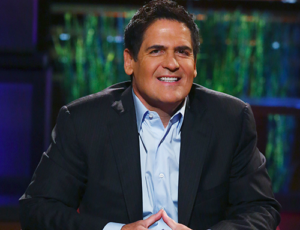


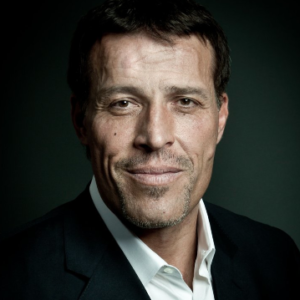
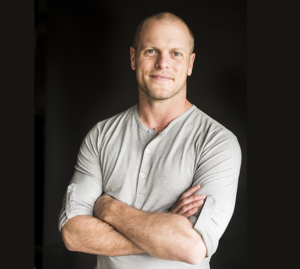

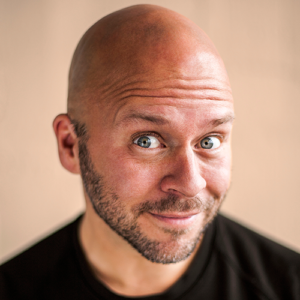
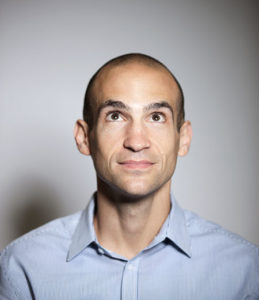



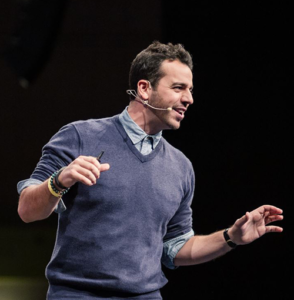

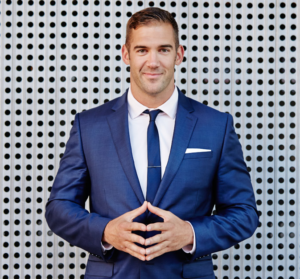














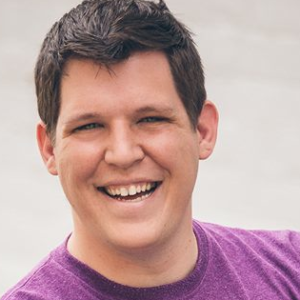




















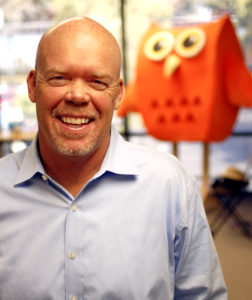










227 replies to “63+ Top Entrepreneurs Share Best Business Advice and Tips for Success”
Great article, thank you!
You’re so welcome, Andrea 🙂
As a young entrepreneur I was asking questions like ‘How can I find my customers? How can I do my marketing? How can I build the technology? etc. I had one of my business mentors point out that I was destined to grow a small company. He pointed out that I was asking “Selfish Questions.” He then pointed out that any question that involves “I” is selfish and limiting. The best questions for an entrepreneur always begin with WHO. in other words, How can I find my customers becomes ‘Who has my customers?’
-Douglas Vermeeren
👏👏👏
This was awesome! The list was just overwhelming and thats more than Exciting. Perfect!
🙏
Wow, this article is very timely, thank you for sharing this. This is very helpful for anyone who wants to start a franchise business during this crisis, I hope they can get a chance to see and read this.
You’re welcome, Charles—and thanks for the kind words as well!
You sound like an expert! Have you considered mentoring? I mentor through Lisnic and it’s honestly a great way to pay it forward and earn a little extra 💸 on the side.
Thanks, Taylor! I’ll consider it 🙂
Well said.
🙏
A good read.
Glad to hear it!
Huh, nice, that article really has great content. I have always problem to find customers to sell my product. I am just in the middle of this, but seems helpful
Wishing you luck!
My best advice would be to manage your financials with caution.
Agreed!
This is a good analysis and inspiring story that keeps me motivated before starting a new business. I agree with this point mentioned, “Success comes from hard work”. Thanks for sharing this informative content!
You’re welcome, Jennifer! 🙏
Very Informative Article. Thanks for sharing this
You’re welcome! 🙂
I love you
Thanks! 🙏
Wow! Glad I stopped by your post. I really find it very helpful!
Love to hear that, Regina! Thanks.
Hi,
The article is well written and worth reading. Thank you for sharing the valuable information. Please keep sharing more
Will do!
Starting a business needs hard work and dedication. If you have a proper plan then only take your first step. Thanks for sharing these useful tips.
Agreed!
Awesome content thanks for sharing as it comes with a lot of useful details.
🙏
These business ideas are constructive because I want to start my own business, and I am slightly confused about which business I need to start. But The above business entrepreneurs have shared excellent advice and stories about starting a business which is beneficial for me. Thanks for sharing such a fantastic article.
You’re welcome, Angela! Wishing you the best of luck with your business 🙂
Hi Ryan,
I’ve read some of your articles, and based on what I’ve read I’ve got an idea for a story I think you might be interested in. I noticed a lot of these talk about the ideas behind your business. But what if you already have a business up and running and now you just feel stuck? I know many business owners who feel stuck in limbo after just starting their business. I’d love to work together on a piece about how to get out of this phase. My boss Jahna and I have been talking about it a lot lately and it’s crazy how many business owners don’t know what to do after they started. Let me know what you think and maybe we can discuss more. Thanks
Thanks for sharing, Rachel! Great idea, I like it a lot. I have a lot on my plate at the moment, but if you want to drop me an email with some more details around this topic for a possible guest post one day, please do—I’m [email protected]
Thank you 🙂 This piece of information really helped me!
Keep Updating 🙂
Glad to hear it, Nashaa!
I just came to this blog for the first time, and I am very interested in the information presented, I will come back another time, thank you
Nice! Thanks for stopping by 🙂